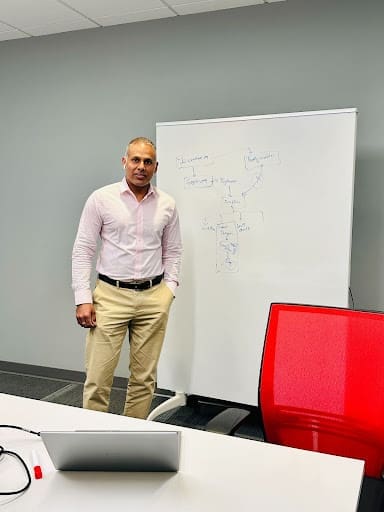Artificial intelligence (AI) is revolutionizing data engineering, reshaping how information is collected, transformed, secured, and used to drive decisions. As organizations increasingly turn to data as a core business asset, AI is enabling a shift from manual data management to intelligent, adaptive, and predictive systems.
Bapi Ipperla, a senior data engineering expert and thought leader, has spent over 18 years at the intersection of AI, cloud architecture, and data security. A senior IEEE member and frequent contributor to scholarly discourse, Bapi believes AI is no longer a luxury in data engineering, it’s the foundation for scalable, resilient, and real-time infrastructure.
AI in Data Engineering: Beyond Efficiency
AI’s impact on data engineering is not just about automating workflows, it’s about redesigning the architecture itself. AI-driven pipelines can now parse unstructured data, optimize storage formats on the fly, and even suggest schema evolution based on real-time usage patterns.
“AI allows us to automate complex data processes, reducing the time and effort required to derive actionable insights,” Bapi notes. By embedding intelligence into the pipeline, engineers can focus more on strategy and less on routine maintenance.
His scholarly contributions include the paper, Architecting Secure Big Data Environments: Risk Management Strategies for Hadoop, Spark, and Cloud Deployments, which explores how AI can be applied to streamline data lifecycle governance, including real-time ingestion, lineage tracking, and compliance auditing.
Predictive Analytics: Turning Past Data Into Future Decisions
Predictive analytics is one of the most transformative uses of AI in data engineering. Instead of merely reporting on what has happened, intelligent systems now forecast what’s likely to happen next. This shift empowers organizations to anticipate demand, personalize customer journeys, and proactively manage risk.
“Predictive analytics gives us the foresight to stay ahead of the competition,” says Bapi. From anomaly detection in financial systems to churn prediction in subscription models, AI-driven prediction is becoming an essential function of modern data stacks.
Bapi’s work on AI-powered data integration platforms was also explored in an article titled “AI-powered Data Engineering’s Game-Changing Impact on Business Strategy’, which is a testament to his commitment to innovation. These platforms streamline data from multiple sources into a cohesive system, providing businesses with a holistic view of their operations. “By integrating data seamlessly, we can provide a comprehensive understanding of the business, enabling better decision-making,” Bapi notes.
Securing the Data of the Future
As AI tools get smarter, so too must the defenses that protect them. Data engineering teams are increasingly responsible for ensuring secure ingestion, masking sensitive fields, and monitoring for anomalous access patterns in real time. AI plays a critical role here as well.
In his paper, AI in Risk-First Architecture: Mitigating Threats in Cloud-Scale Pipelines, Bapi proposes a framework for integrating AI-powered security across every layer of the data stack, from access control to network segmentation to real-time anomaly detection.
“AI-driven security measures allow us to detect anomalies and respond to threats in real-time,” he explains. With the stakes rising, from regulatory compliance to reputational risk, security must now be seen as a continuous, adaptive process, rather than a static checklist.
A Vision for AI-Native Data Platforms
Bapi envisions the rise of AI-native platforms where intelligence is embedded, not added as an afterthought. From automated schema validation to self-tuning queries, the future will be shaped by systems that understand and optimize themselves.
“The integration of AI with data will create smarter, more efficient systems,” he predicts. Already, trends like real-time observability, federated data processing, and AI-enhanced ETL orchestration are reshaping what’s possible in engineering.
With his combined expertise in secure architecture, predictive analytics, and scholarly thought leadership, Bapi Ipperla is helping lead this transformation, proving that the future of data engineering lies not only in how we manage information, but how intelligently we let it evolve.
